
There is an oft-overlooked step in the evolution of the sporting gun, which theoretically surpassed pin-fire and signposted the concept of centrefire almost a decade before Daw launched the real thing onto the British market, with his purchase of patent rights to Schneider’s design, in 1861.
Many people consider the major step-changes of style from percussion cap, to pin-fire, to centrefire but, while these are the most frequently encountered developments, there is one other relic from the period which bridged the gap between the last two, but which never became widespread. That concept was the ‘base-fire’ and it was presented to sportsmen by Charles Lancaster in 1852, just after Casimir Lefaucheaux had exhibited the pin-fire breech loader in London at the Great Exhibition in 1851.
Looking at the two ideas side by side today, it is somewhat puzzling to reflect that it was the Lefaucheaux pin-fire that largely superseded percussion cap ignition, not the Lancaster base-fire. To modern eyes, base-fire very closely resembles later centre-fire guns. The ammunition looks identical, until the primer is examined more closely, and a base-fire hammer gun looks very like a centre-fire hammer gun until opened.
Surely, Lancaster’s was a much better system, without the clumsy pins sticking out of the side of the cartridge, protruding through a hole in the barrel. Pin-fire was slower and more fiddly to load, more prone to damage and malfunction and the guns appear flimsy and unsatisfactory when compared to Lancaster’s robust and beautifully engineered base-fire guns. Yet we see lots of pin-fire guns today and few base-fires.
هذه القصة مأخوذة من طبعة July 2020 من Sporting Shooter.
ابدأ النسخة التجريبية المجانية من Magzter GOLD لمدة 7 أيام للوصول إلى آلاف القصص المتميزة المنسقة وأكثر من 9,000 مجلة وصحيفة.
بالفعل مشترك ? تسجيل الدخول
هذه القصة مأخوذة من طبعة July 2020 من Sporting Shooter.
ابدأ النسخة التجريبية المجانية من Magzter GOLD لمدة 7 أيام للوصول إلى آلاف القصص المتميزة المنسقة وأكثر من 9,000 مجلة وصحيفة.
بالفعل مشترك? تسجيل الدخول

RSPB gives mixed message on shooting
Having recently attended the RSPB’s virtual AGM, Conor O’Gorman discusses the outcome of the charity’s year-long review of game bird shooting
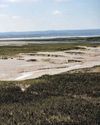
Causeway for concern
Alan Jarrett’s renewed interest in reading takes him down memory lane to an offshore island duck flight that very nearly ended in disaster

Through a purple patch
The Garrows Estate is taking a conservation-focused approach to restoring the wildlife populations and biodiversity on the Scottish heather moorland.
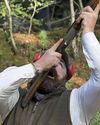
When the wheels fall off
Losing form on a day’s shooting can be infuriating, especially if you’ve been shooting like a god up to that point. Simon O’Leary looks at some common causes and how to remedy them

Beaches, books & bad behaviour!
The annual Kay family vacation to Northumberland offers a chance to give the cockers a blast on the beach – although they don’t always shower themselves in glory, as Ryan Kay recalls...
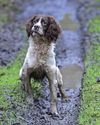
Using the Stop whistle
Now you’ve instilled the basics, it’s time to up the ante with some more tricky distance work. Howard Kirby explains how to take the core Stop whistle command to the next level
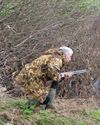
The humble teal
They may be tiny, but as far as Rupert Butler is concerned, the appeal of this little duck is huge. He recalls some of his most memorable nights in pursuit of these aerial acrobats
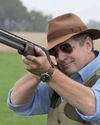
Fab all-rounder
Mike is impressed with the Fabarm Elos B2 Field Notte, which offers great value for money, is suited to fieldwork or clays and is future-proofed for use with steel in all choke constrictions

CALL OF THE WILD
Dom Holtam reconnects with one of the purest forms of shotgun shooting as he walks-up woodcock over pointing dogs in the Scottish Highlands
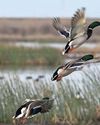
A yen for the Fens
Tony Jackson recounts a memorable duck flight over an area of Fenland in Norfolk with his friend and author, the late Alan Savory